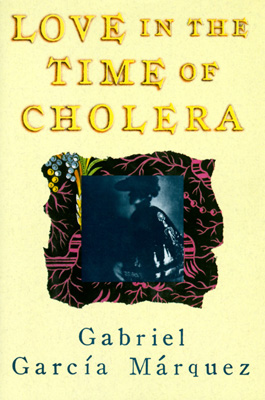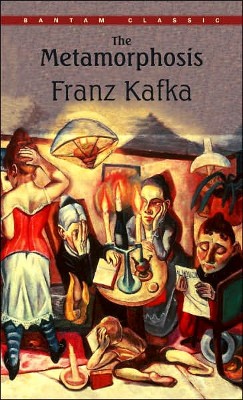Further up the lagoon, an octagon, a tower, before lancets of Poveglia—Left to their quaranta
Giornata; Insarov’s concealed tuberculosis was given three days by a solitary, who might have been a plague doctor—
Had Zoya then given up thinking in German; as for redoubling eastward to the legion toward Sevastopol
Had we not taken in, with my mother, in her box, the aria Tre giorni son che Nina (1749) by the Neapolitan Pergolesi
Succumbing to the same in Pozzuoli (1736)—In a second-rate room in Lido, after a porter made off with his purse—
After his face is covered, out of the stained linen a Rosetta star bead, worn of its seven layers, rattles
Onto the floorboards—Walking, in distraction, toward an unmanned pram to pocket an infant’s silver christening rattle,
Hailed by the vigilant eldest daughter—Becoming a French governess to a British family, in a manner, for a woman, no less than the Crusades, of the Swedish Quaranta’s
Ascent of the Neapolitan parliament; Shubin enlarged on all of the formerly cobbled ancestries—The matron set to reading Balzac’s The Purse (1832)
At tea, where the pert girl came around to asking after the silver glint conveying such tastes; catching the patriarch inhaling from a hotel napkin steeped in chloroform, to the doctor’s
Family—For a reply; ignorant of Latin, and obstructed from being a Sister, came with morsels of Lamartine—Sa voix a-t-elle encore ce doux timbre d'argent? (1799)—This theater, with the sagacity of their much deferred holiday before sailing to Sevastopol,
Ended within sight of the wretched port of Balaclava (October 1854) two days choked within the moorings of merchant ships—Named for dwellers of the dragon’s lair, the Draghi della Pergola, residing in the Pesaro of Rossini (1792-1868), famiglia Pergolesi—
Florence Nightingale arrived at Scutari (4 November 1854)—Born in January; the San Gennaro procession from the solfatara, by the bishop’s effigy who had taken upon himself the plague (1656), perhaps annealed the Capuchins to Pergolesi
In his last year of life; rather than as they are recognized, by catacombs where friars’s skeletons rattled
Among robes the color of frothed coffee—Heeding accounts of the vermin-infested General and Barracks Hospitals of Sevastopol,
In the foreground of minarets of the Blue Dome; the ship was loaded with a box camera, patriotic gentlewomen separating their men from ruinous mistresses; each existing in their own quarantines—
Descending the gangplank; briskly, with a purse
Of modest earnings, with the gift of a mother-of-pearl dressing case, the shammed Russian shadowed vivandières in breeches to a canteen known as Spring Hill—Taking the hospitality from Mary Seacole, a Jamaican proprietress hydrating the wounded in hammocks, while engaging a crate of citrus for the grenadier’s bleeding gums; given the chronic shortage of doctors—
Turning to Alexis Soyer, who pontificated on the use of festering buttons; torn off of a doublet, doubtlessly, with the teeth, identifying each soldier’s fly-borne rations; the lamentable tinned diets, contributing to the cholera and food poisoning cases overburdening the doctors
Far from the genteel convent Miss Nightingale conceived in London; her post was set apart from the front lines of Balaclava, for the apparent regimen of white aprons and scorching carbolic—At the crossroads her station keeping; the first line of a suppressed hymn after Pergolesi’s
Arrangement (1736), Mary attended extremities in this temperate Black Sea climate, as chef cuisinier Soyer, on her own proceeds—Transported with a handle of a bucket or purse,
Soyer’s drum and furnace heated with minimal fuel, which doubled as a space heater, until Lindqvist’s pressurized paraffin Primus stove (1892)—Before the rattling
Wine merchant’s wagon was packed with 700 glass slides (1855), Roger Fenton photographed acquisitions from the British Museum (1853-1858) from the roof, which affected the setting of the plateaus of Sevastopol—
Though it is unrecorded, Fenton; rather, his servant, Sparling, numbered the patrons afflicted with cholera seeking Mrs. Seacole’s remedies in the quarantinable
Foci of the campaign, from Redan, Malakoff, and Mamelon, the improvised trenches, with migration of quarantinable
Cannon in the two frames of the Valley of the Shadow of Death (1855)—Attesting to the lives Elena Stahov may have never lived, had she not expanded Mrs. Seacole’s French market in a boardinghouse abjected of doctors—
She, who had, at last, joined a contingent of Russians for Paris early March (1856), only with a sense for a surviving horse of the heavy calvary and light horsemen; what of Russian exports at Sevastopol—
Discussion of releasing the serfs of their twenty-year military obligation, and the land, to bolster gross domestic product; as for the Eastern Question that spans half of Pergolesi’s
Six-year career, but exhausts the composer's misattributed catalog—Whereas, you had dropped your purse
Occupied where I am, at a bookseller’s; contemplating a registered kiosque in the planned boulevard, when the late December wind rattled
The signboard—Concorrenza, the driving hunger that rubbed out a past of feigning currency in Prussia, before photographing monuments, and I followed you home, to the Château de la Faloise; later, you took pains to screen my face in your salted paper, beneath a parasol (1857)—We both attended the death rattle
Of your wife, though she accepted her successor (1858)—Lifting the onionskin pages, the plates; quarantined
From sales, where Verrocchio’s Baptism of Christ, still gives us pause—Leonardo da Vinci’s angel; in even oils expunging the painter’s hand, when he was twenty-one (1473)—Your purse
Was reconciled underneath my proposed meeting place, Les Chevaux de Marly, Champs Élysées; a subsequent héliogravure of yours, among the contents of the Louvre (1860)—Jacques Louis David had orchestrated (1749) the Coustous, on the anniversary of his commoner’s death in Brussels, 29 December 1825—You doctored
The panorama of the Saint-Trophîme cloister in ten plates (1861); citing them in periods of doubt, as the radical freedom of twenty-one Constructivists—Images as commerce surveyed by Malevich’s Black Square (1915); beheld as a secret between us, Paul Gustave Doré’s print of the history of Russia, the mists of antiquity, into a black square (1854), and before the Siege of Sevastopol—
Predating his other prescient pieces of the Inferno (1861), the Newgate Exercise Yard (1872), the Mariner (1876), and Paradise Lost (1883)—Emancipation occurred a month, or two; depending on the calendar, before April 1861, the news of war by those reduced by debt to scraping for opposing landowner largesse or Christmas half-days from the coalfaces and mills—Pergolesi
Never projected masses for three-fifths of a man; trounced on medieval chevaux de frise that would be no match again against the gas, and their effects reckoned by an auscultative rattle, as Pergolesi’s
Lungs—To enumerate Tatlin’s egalitarian stove (1929), or the pyramid for the executive of his unbuilt tower of the Third International (1919-1920), there is an undermining cynicism—The reread Pogodin’s It is not light which is dangerous, but darkness (1854), for the means of avoiding that ship quarantine at Sevastopol—





15 comments:
http://www.duomomilano.it/en/infopage/baptistery-of-san-giovanni-alle-fonti/67d4c7df-8326-4b45-a242-0df1fc11196d/
https://vimeo.com/88829079
Yes, you are once again the perceptive reader in noting the octagon; symbolizing the eighth day of creation, or eternity, along with the current preoccupation with the ocean.
https://books.google.com/books?id=R7fQBQAAQBAJ&lpg=PA90&dq=Carol%20%22She%20left%20her%20billfold%20on%20the%20counter%22&pg=PA90#v=onepage&q=Carol%20%22She%20left%20her%20billfold%20on%20the%20counter%22&f=false
I was looking at a picture of a span by Isambard Kingdom Brunel, who completed an apprenticeship with Breguet.
https://www.hup.harvard.edu/catalog.php?isbn=9780674008021
I will put Exercise 88 here.
I will to take up Master Georgie (1999) again sometime.
https://books.google.com/books?id=zyFtSwVvl_AC&pg=PA109&lpg=PA109&dq=master+georgie+pompey+jones&source=bl&ots=yMcL3g85ik&sig=ACfU3U2kR2qCaCp77b1BOZSi-0BJNZyd7Q&hl=en&sa=X&ved=2ahUKEwiY7cz3pp3qAhXSknIEHd-4CVcQ6AEwCXoECAEQAQ#v=onepage&q=master%20georgie%20pompey%20jones&f=false
https://www.google.com/amp/s/amp.theguardian.com/books/2011/apr/20/master-georgie-beryl-bainbridge-review
https://www.ssgreatbritain.org/your-visit/collection-stories/isambard-kingdom-brunel%E2%80%99s-design-renkioi-hospital-1855
https://www.thevintagenews.com/2016/12/04/john-callcott-horsley-the-designer-of-the-first-christmas-card/
https://onedrive.live.com/?authkey=%21AB94u6nc7pwTci0&cid=F55F42B98D0538C0&id=F55F42B98D0538C0%213197&parId=root&o=OneUp
The Victorians really celebrated the season:
https://books.google.com/books?id=f2OHDgAAQBAJ&printsec=frontcover&dq=biography+of+christmas+flanders&hl=en&sa=X&ved=2ahUKEwj78p-3mMLtAhVKm-AKHYR-CsgQ6AEwAHoECAAQAg#v=onepage&q=biography%20of%20christmas%20flanders&f=false
I have gotten my hands on the unexpurgated epistolary novel written by a homosexual in debtor's prison, which foregrounds Memoirs of a Woman of Pleasure (1748-9). John Cleland's reversals of fortune include losing his government pension at 80 years old for disreputable acts.
I mention this here because it reminds of what Myrtle (Venusian flower and bridal bouquet of Queen Victoria) might have read for some practical advice.
I will find the Flanders text I keft unfinished on a shelf, and read it soon.
https://www.atlasobscura.com/places/le-chabanais-2
Yes, Brunel and Bainbridge. Thank you, for reminding me.
Exercise 91. To hold the place.
No, to Cleland and to Xmas.
https://books.google.com/books?id=NNzcEAAAQBAJ&pg=PT5&source=kp_read_button&hl=en&newbks=1&newbks_redir=0&gboemv=1#v=onepage&q&f=false
https://youtube.com/shorts/XuzK5unCZxA?si=HGAP6xC_qPSR_eyq
Two of my birthday books that arrived just in time when I was about to fume about having to go to get a new washer (after mopping up the mess from the kaput front loader early this morning).
https://www.google.com/books/edition/Midnight_in_Chernobyl/TjxqDwAAQBAJ?hl=en&gbpv=1&dq=Midnight%20in%20Chernobyl%20Higginbotham&pg=PA103&printsec=frontcover
688 pages with annotations after a college try with John Keats! What olfactory surprises await.
https://www.google.com/books/edition/Nose_Dive/nmrVDwAAQBAJ?hl=en&gbpv=1&bsq=Nose%20Dive%20McGee%20Keats
My mother came over to advise with the appliance, just before her hair appointment. She related that Elevendy's teacher pulled Keith aside to tell him that so-and-so said he was going to kill her. Keith said, "Well, she probably deserved it," to the teacher's surprise.
I waited for her in her second Jaguar XJ Vanden Plas (she is collecting them now, the late 1990s models - for my taste, a mid-aughts XJ Super 8 has the streamlined shape and the horsepower) while she mailed something in the post office. I had not ridden in this vehicle, and I admit to liking the honey burlwood quite a lot, particularly this wood kit with many birdeyes. I turned on the tape deck, and there it was - Billy Idol's Rebel Yell tape cassette for Chrysalis Records - Eyes without a face / Les yeux sans visage (1984).
There was also a mixed tape, Troy's Party Mix 1986 with Living in a Box's "Living in a Box" (1986) and the 1963 Please Please Me album on cassette in the console.
Very memorable day, indeed. No matter how melodramatic and dissatisfied I could be, I am not. Ha! I will never lose my sense of humor.
https://www.youtube.com/watch?v=9OFpfTd0EIs
https://www.youtube.com/watch?v=yewFktSjEDg
https://www.youtube.com/watch?v=mHzfhU8t5i8
https://www.rvinyl.com/Blog/A-Guide-to-Using-Burlwood-in-Your-Car
https://www.loudersound.com/features/a-brief-history-of-chrysalis-records
https://www.motortrend.com/vehicle-genres/jaguar-xj-history-generations-specifications/
Post a Comment